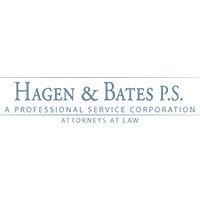Montesano White Collar Crime Lawyer, Washington
Sponsored Law Firm
-
 x
x

Click For More Info:
-
Russell & Hill, PLLC
1212 North Washington St. Suite 132 Spokane, WA 99201» view mapCriminal Defense Law Professional, Personal, Proven
You have questions, and we have answers. Here at Russell & Hill, PLLC, we know how to obtain the most favorable outcome for your particular circumstances.
800-928-5340
Not enough matches for Montesano White Collar Crime lawyer.
Below are all Montesano Criminal lawyers.
Wayne D. Hagen
✓ VERIFIEDCriminal, Personal Injury, DUI-DWI, Business
Since the firm was established in 1993, the skilled attorneys at Hagen & Bates P.S. have provided versatile, professional and effective solutions to a... (more)
Harold S. Menefee
State Government, Criminal, Securities Regulation, Administrative Law
Status: In Good Standing Licensed: 45 Years
Jack Bradford Micheau
Family Law, State Government, Indians & Native Populations, Criminal
Status: In Good Standing Licensed: 41 Years
Amanda Kleespie
Juvenile Law, Federal, Criminal, Indians & Native Populations
Status: In Good Standing Licensed: 19 Years
Orlando James Tadique
Accident & Injury, Personal Injury, Criminal, Divorce & Family Law
Status: In Good Standing Licensed: 19 Years
David Leonard Mistachkin
Landlord-Tenant, Family Law, Criminal, Personal Injury
Status: In Good Standing Licensed: 21 Years
Ronnie A. Soriano
Divorce & Family Law, DUI-DWI, Estate, Landlord-Tenant, Native People
Status: In Good Standing
FREE CONSULTATION
CONTACTScott A. Campbell
Divorce & Family Law, Criminal, Personal Injury, Car Accident
Status: In Good Standing
FREE CONSULTATION
CONTACT James Hill Spokane, WA
James Hill Spokane, WA Practice AreasExpertise
Practice AreasExpertise

